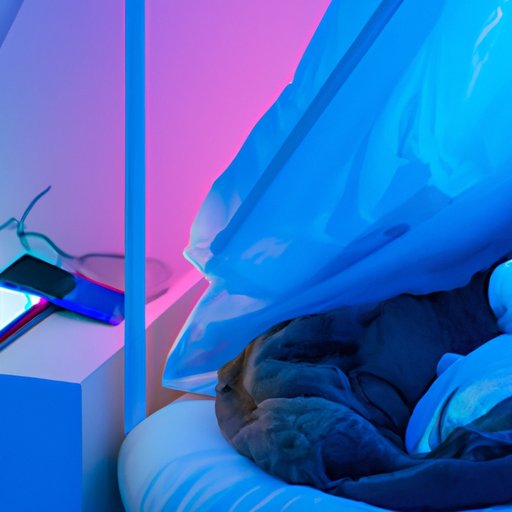How to Sleep Fast: Tips for Falling Asleep Quickly
Do you struggle with lying awake for hours at night, unable to fall asleep? You’re not alone. Difficulty falling asleep, or insomnia, is a common problem affecting millions of people worldwide. The good news is, there are several helpful tips and tricks you can try to fall asleep faster and wake up feeling refreshed. In this article, we’ll explore some of the best ways to sleep fast and get the restful sleep you need.
Develop a Bedtime Routine
A bedtime routine is a set of activities that you do every night before going to bed. Creating a consistent routine can help signal to your body that it’s time to wind down and relax, making it easier to fall asleep quickly. Some examples of activities to include in your bedtime routine are:
- Take a warm bath or shower
- Read a book
- Do some gentle yoga or stretching
- List your thoughts or worries in a journal
- Drink some chamomile tea
To create a consistent bedtime routine, choose a set of activities that you enjoy and can realistically do every night. Try to do them in the same order and at the same time each night. Over time, your body will start to anticipate the routine and prepare for sleep.
Use Relaxation Techniques
Another effective way to fall asleep fast is by using relaxation techniques. These techniques can help slow down your heart rate, calm your mind, and prepare your body for restful sleep. Some relaxation techniques to try include:
- Deep breathing exercises
- Progressive muscle relaxation
- Guided imagery
- Meditation
- Aromatherapy with essential oils
To try deep breathing, take slow, deep breaths in through your nose and out through your mouth. Count to four as you inhale, hold for four seconds, and exhale for four seconds. Repeat for several minutes until you feel relaxed. For progressive muscle relaxation, lie in bed and tense each muscle group in your body for five seconds before releasing and relaxing. Work your way up from your toes to your shoulders, focusing on each muscle group.
To incorporate relaxation techniques into your bedtime routine, try doing them in bed or in a comfortable position before getting into bed. Avoid any activities that stimulate your mind or body, such as exercising or watching TV, before bedtime.
Adjust Your Sleep Environment
Your sleep environment can have a big impact on how quickly you fall asleep. Creating a sleep-conducive environment can help you sleep fast and soundly. Here are some tips for adjusting your sleep environment:
- Keep your bedroom dark, cool, and quiet
- Invest in a comfortable mattress and pillows
- Avoid using electronic devices in bed
- Use blackout curtains or a sleep mask to block out light
- Try using white noise or earplugs to block out noises
Experiment with different strategies to find what works best for you. Some people find that white noise, such as a fan or sound machine, helps them sleep better. Others find that earplugs block out noise and help them fall asleep more easily.
Limit Exposure to Electronics
Electronics, such as smartphones, TVs, and tablets emit blue light that can interfere with your body’s natural sleep-wake cycle. Exposure to blue light at night can suppress the production of melatonin, a hormone that helps regulate sleep. Limiting your exposure to electronics before bedtime can help you fall asleep faster. Here are some tips to reduce your exposure to electronics:
- Avoid checking emails or social media before bed
- Turn off electronic devices at least one hour before bedtime
- Dim the lights in your home in the evening
- Read a physical book instead of an e-book
- Do a relaxing activity, such as taking a bath or listening to music, instead of using electronics before bed
Don’t Force It
It’s important to remember that forcing yourself to sleep is counterproductive. If you’re unable to fall asleep after lying in bed for 20-30 minutes, get up and do something relaxing. You can try reading a book, listening to music, or doing a relaxation technique. Avoid looking at the clock or getting frustrated, as this can create negative associations with bedtime. Instead, try to adopt a positive and relaxed mindset towards sleep.
Conclusion
Falling asleep quickly is essential for a restful night’s sleep. By developing a consistent bedtime routine, using relaxation techniques, adjusting your sleep environment, and limiting exposure to electronics, you can fall asleep faster and wake up feeling refreshed. Remember, don’t force yourself to sleep and try to adopt a positive mindset towards bedtime. With these tips, you’ll be able to sleep fast and soundly.
